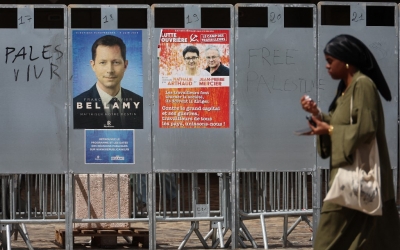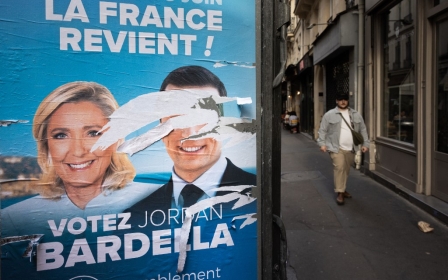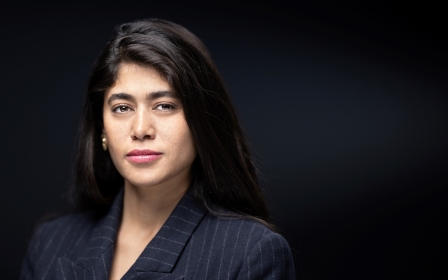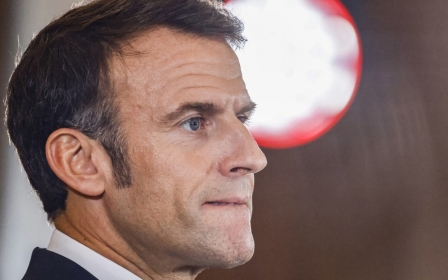Jerusalem waste collection at centre of latest spat between France and Israel
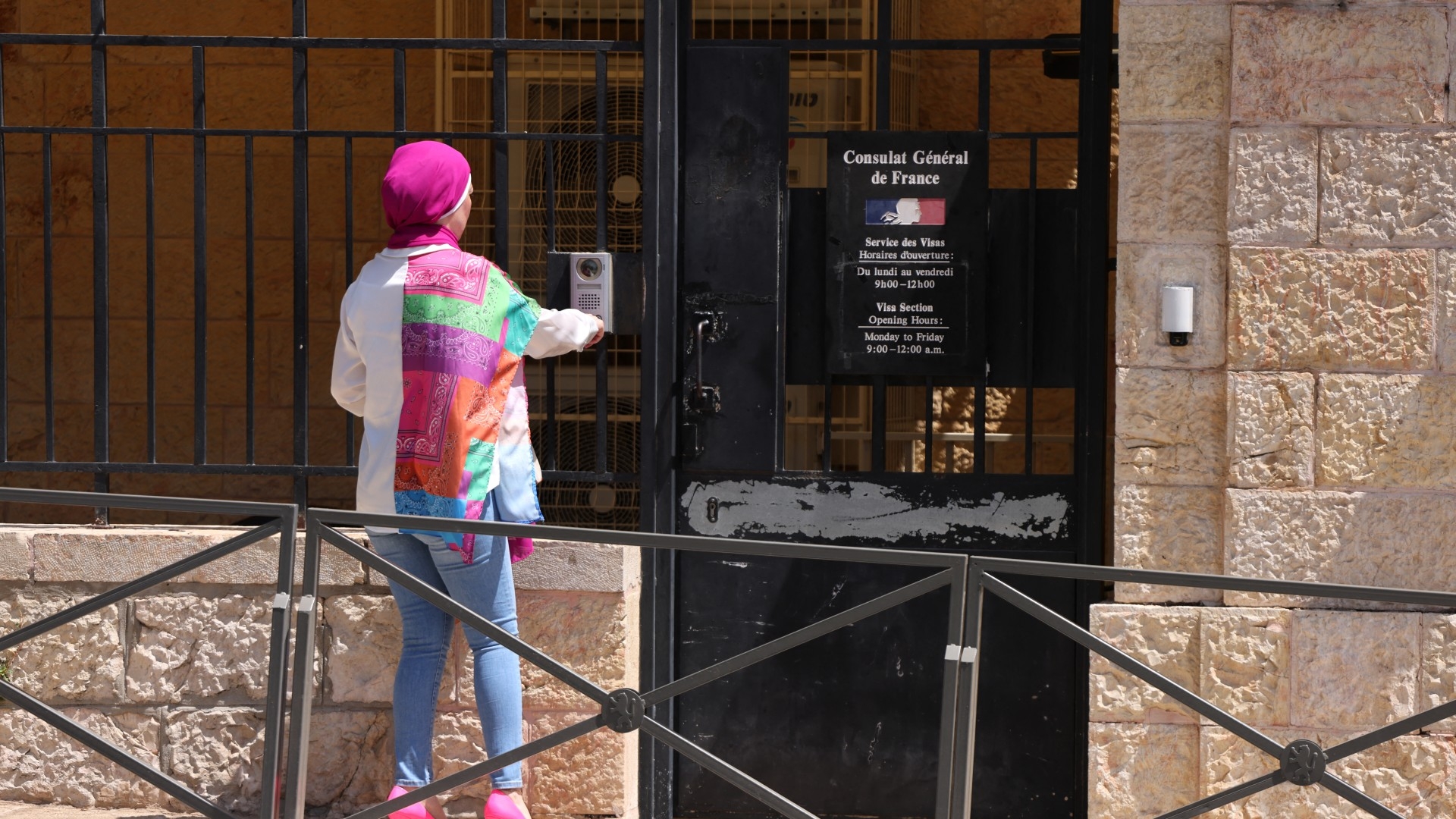
Jerusalem’s deputy mayor has urged municipality workers to deny waste collections and lawn mowing services to the French consulate for Palestinians, in the latest instance of simmering tensions between France and Israel.
On Tuesday, far-right deputy mayor Aryeh King posted a letter on X which he had sent to the Jerusalem municipality’s sanitation department.
"In view of the treacherous and anti-Israel conduct of Emmanuel Jean-Michel Frederic Macron, the president of France who passed resolutions in his government whose purpose is to harm the state of Israel and Israeli industry, I ask you to order the employees… to immediately stop the service of removing the garbage from the French Consulate building," the letter stated.
The consulate is situated on Paul Emile Botta Street, in the Yemin Moshe neighbourhood just outside occupied East Jerusalem’s Old City.
"I would like you to make sure that the municipal workers who clean Paul Emile Botta Street refrain from… collecting waste, as well as trimming the grass on the pavement in front of the consulate."
New MEE newsletter: Jerusalem Dispatch
Sign up to get the latest insights and analysis on Israel-Palestine, alongside Turkey Unpacked and other MEE newsletters
A spokesperson from the Jerusalem municipality told Israel’s Walla News that it "removes the garbage from all parts of the city on a professional basis and provides the best service to all its residents".
King’s reference to harming Israeli industry is likely to relate to French authorities banning Israeli defence companies from exhibiting at Eurosatory, the world’s largest defence and security exhibition, in Paris. The ban has since been overturned.
At least 74 Israeli companies were due to exhibit at the event, which began on Monday.
When the ban was announced on 31 May, France’s Ministry of the Armed Forces said: "The conditions are no longer met to receive Israeli companies at the French show, in a context where [Macron] is calling for Israeli operations to cease in Rafah."
On Friday, a French judicial court, referred to by pro-Palestinian NGOs, went further by banning the participation in any form whatsoever of Israeli arms manufacturers, invoking the latest decision of the International Court of Justice ordering Israel to immediately stop its offensive on Rafah, as well as the obligation to prevent genocide in compliance with the 1948 convention.
But on Tuesday, a Paris commercial court ordered the exhibition to reverse the suspension, deeming it to be a discriminatory measure. It followed a complaint filed by the France-Israel Chamber of Commerce.
Internal rift over Lebanon border initiative
Tensions with France came to a head last week when Israeli Defence Minister Yoav Gallant publicly admonished Paris while rejecting a French initiative to contain tensions on the Israel-Lebanon border.
"While we are waging a just war, in defence of our people, France has adopted a policy of hostility towards Israel. In doing so, France ignores the atrocities committed by Hamas," Gallant wrote on X.
"Israel will not be part of the trilateral framework proposed by France," he added, shortly after Macron had announced that Israel would work with Paris and Washington on containing tension along the Lebanese frontier.
As we fight a just war, defending our people, France has adopted hostile policies against Israel.
— יואב גלנט - Yoav Gallant (@yoavgallant) June 14, 2024
In doing so, France ignores the atrocities committed by Hamas against Israeli children, women and men.
Israel will not be a party to the trilateral framework proposed by France.
Gallant’s comments caused an internal rift within the Israeli government, with the foreign affairs ministry distancing itself from the remarks.
Foreign Minister Israel Katz apologised to France in a press release, and said Gallant’s comments were "incorrect and had no reason to be [made]".
The statement said that Paris had come to Israel’s aid in April when Iran launched more than 300 missiles and drones towards Israeli territory, and that it had sanctioned Iranian and Hamas officials.
It added that French authorities had acted against the “scourge of antisemitism” and had taken measures to protect France's Jewish community.
In recent months, Macron has been critical of some of Israel’s military actions in the besieged Gaza Strip.
As early as November, he urged Israel to stop killing babies, women and elderly people in the enclave.
He has also opposed Israel’s ground invasion of Rafah, and told Israeli Prime Minister Benjamin Netanyahu that the forced transfer of Palestinians from the southern Gaza city would be "a war crime".
In April, Paris voted in favour of a United Nations General Assembly vote that recognised Palestine’s eligibility to be a full UN member.
France’s ambassador to Israel, as well as the ambassadors of Japan, South Korea, Malta, Slovakia and Ecuador, were summoned by Israel’s foreign ministry following the vote.
Last month, after the International Criminal Court (ICC) announced it was seeking arrest warrants for Netanyahu, Gallant and three Hamas leaders, France’s foreign minister, Stephane Sejourne, stressed the importance of the "independence" of the ICC.
Arms sales to Israel continue
Sejourne said, however, that the simultaneous requests "must not create equivalence between Hamas and Israel".
"On one side you have a terrorist group that congratulated itself on the 7 October attacks... and on the other side you have a democracy, Israel, that must respect international law while conducting a war it did not start," Sejourne said.
Despite its occasional condemnations of its military actions in Gaza, France has been accused of continuing to sell military equipment to Israel.
On Monday, French investigative website Disclose reported that Paris had approved the delivery of military equipment for drones suspected of killing civilians in Gaza.
The most recent shipment by French company Thales was due to be delivered on 26 May, according to documents seen by Disclose.
Middle East Eye delivers independent and unrivalled coverage and analysis of the Middle East, North Africa and beyond. To learn more about republishing this content and the associated fees, please fill out this form. More about MEE can be found here.


